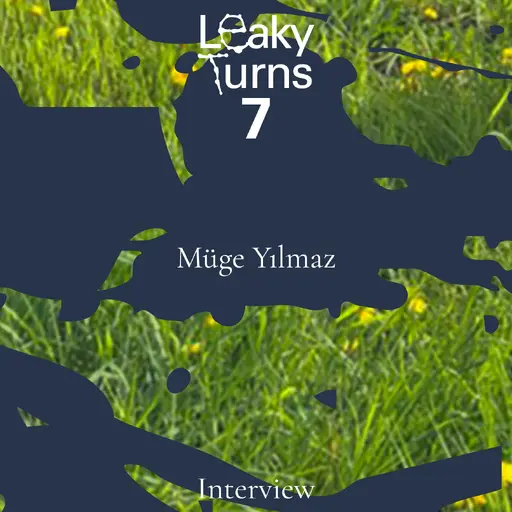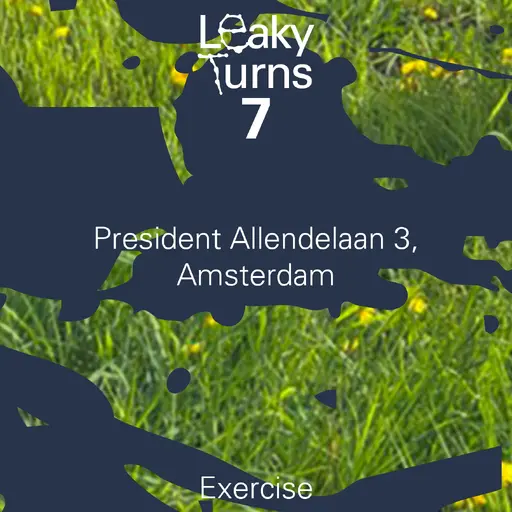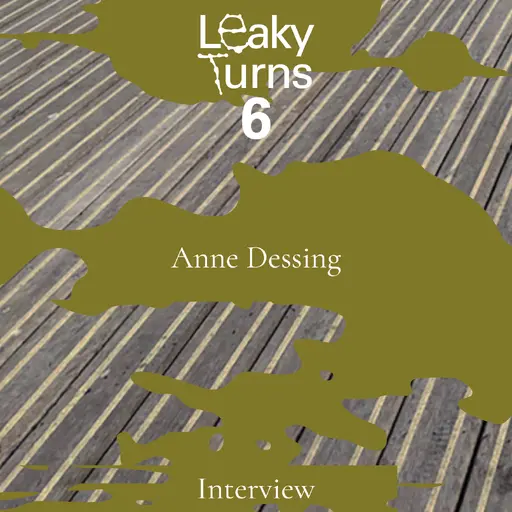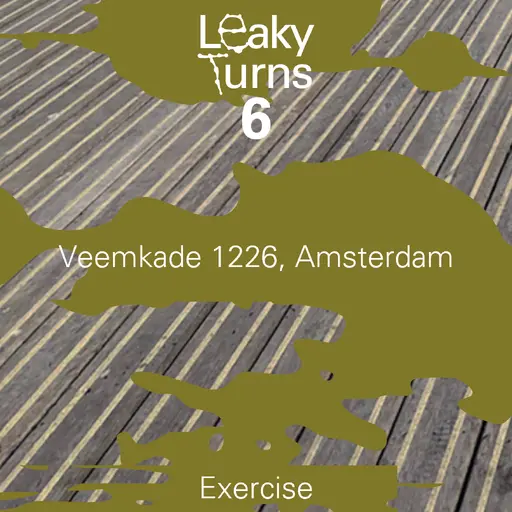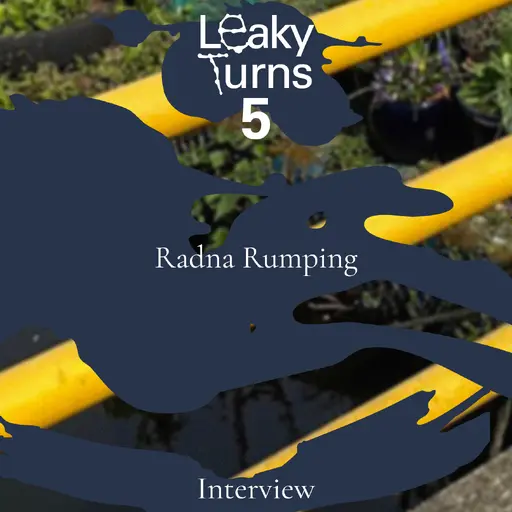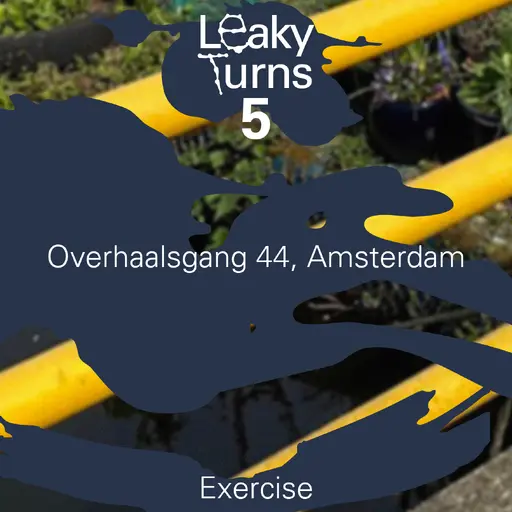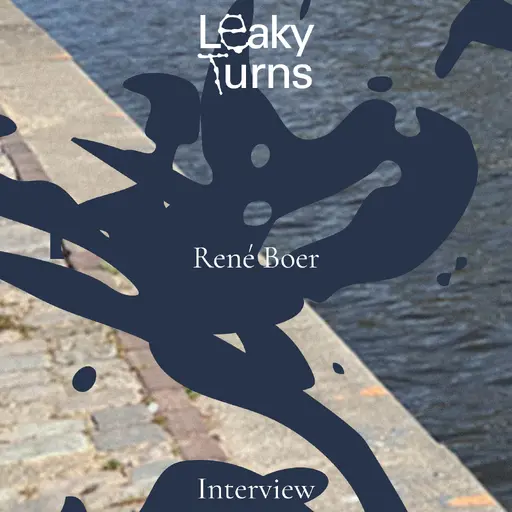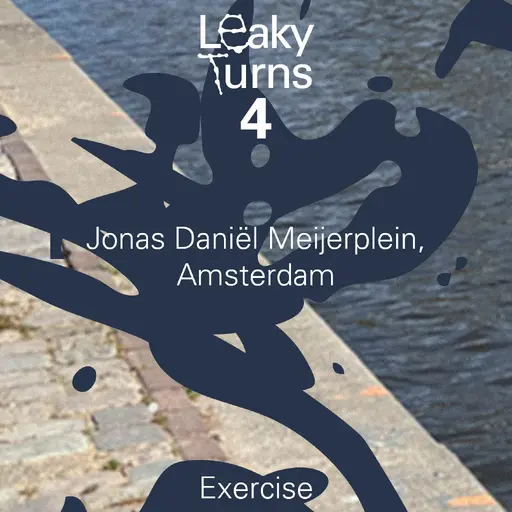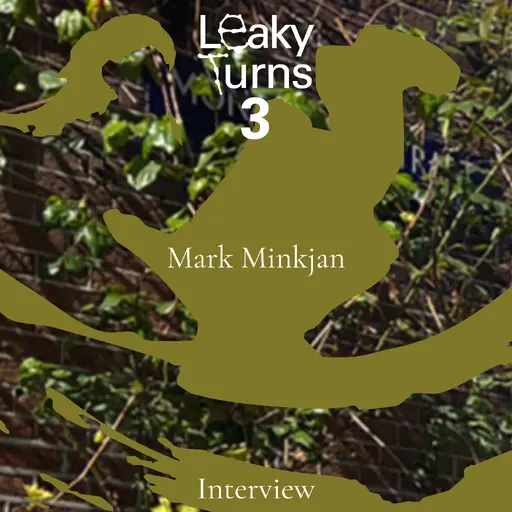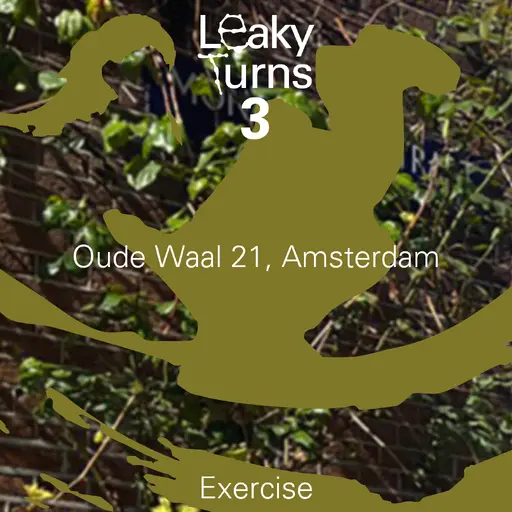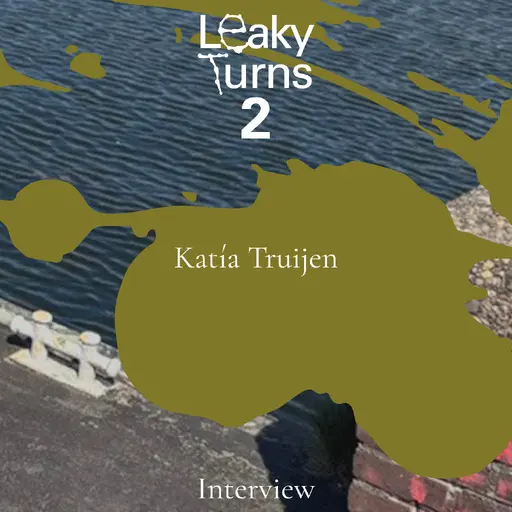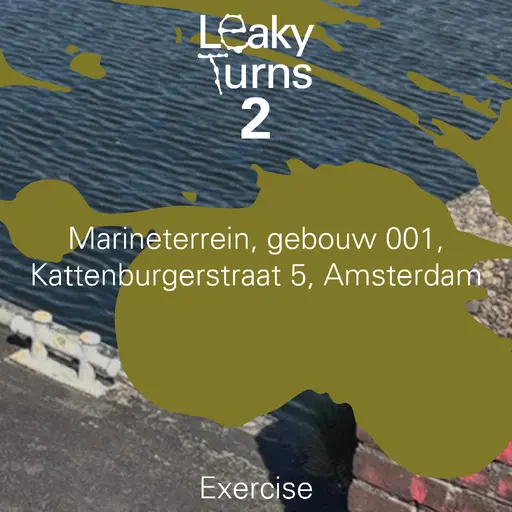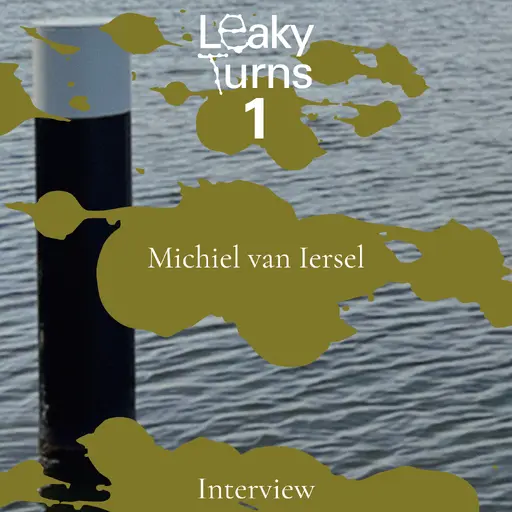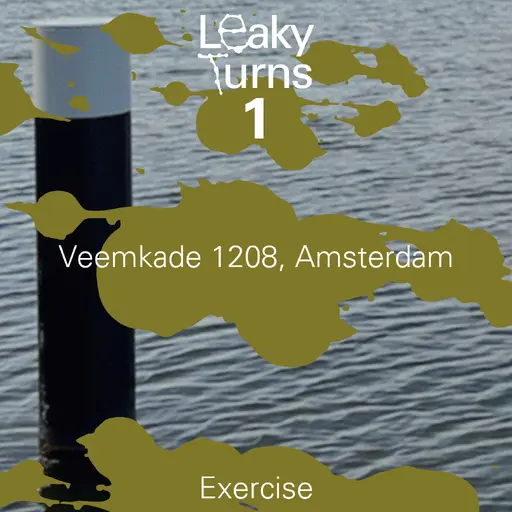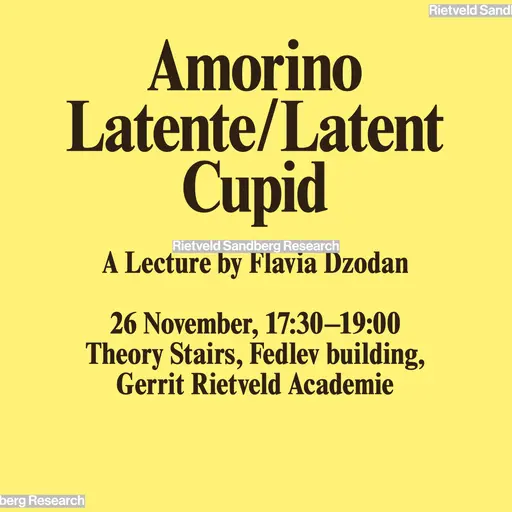audio
Drawing from her research on salinization and her long-standing relationship with water, Müge Yilmaz reflects on pollution, salt-loving plants, and the importance of understanding water not just as a resource, but as a living presence shaped by – and responding to – human and non-human forces. In her work with the collective 4Siblings on a semi-urban, semi-wild plot in Amsterdam, they explore growing food and engaging with ecology through direct, embodied experience and praxis, rather than solely relying on theory.
This podcast is part of the series Leaky Turns
Listen alongside Müge Yilmaz to notice the presence of water, and its movement all around you.
This podcast is part of the series Leaky Turns
In her teaching project with students from Gerrit Rietveld Academy, Anne Dessing focussed on drawing water. She reflects on how the fluid and elusive nature of water invites new ways of perceiving, representing, and understanding it—not as static, blue shapes on a map, but as an omnipresent, connective, and ever-changing phenomenon.
This podcast is part of the series Leaky Turns
Listen alongside Anne Dessing to feel the ground under your feet; read the place you’re in.
This podcast is part of the series Leaky Turns
Following a short excerpt reading from her text Shaky Ground, Stubborn Material, Radna Rumping reflects on floating gardens in Amsterdam as poetic, semi-public spaces that blur the boundaries between land and water, control and instability, imagination and reality. She explores how such spaces invite us to dwell with uncertainty and reconsider dominant structures by engaging with affect, material presence, and the legacies of countercultural practices.
This podcast is part of the series Leaky Turns
Listen alongside Radna Rumping to imagine standing on a floating garden, noticing the changes in your surroundings and yourself.
This podcast is part of the series Leaky Turns
Amsterdam’s canals can be seen as both historically straightened infrastructures, and contemporary sites of queer resistance and celebration––particularly during the annual Canal Parade. Connecting this local example to a broader research into the straightening and queering of water bodies, René Boer reimagines these waterscapes as fluid, inclusive, and ecologically sensitive spaces in response to the ever-present climate crisis and social contestation.
This podcast is part of the series Leaky Turns
Listen alongside René Boer to imagine what the canal has looked like historically, and what it may yet come to look like in the future.
This podcast is part of the series Leaky Turns
Rivers generate fertile land for raw construction materials and agriculture. Mark Minkjan contemplates the intertwined histories of agriculture, clay and brickmaking along the Rhine River, and how extractive practices have shaped both the built environment and the riverine landscape. He contrasts destructive industrial processes with emerging regenerative approaches in farming and architecture that aim to restore ecosystems and foster cyclical relationships with water, soil and materials.
This podcast is part of the series Leaky Turns
Listen alongside Mark Minkjan to try to imagine the material history of the world around you.
This podcast is part of the series Leaky Turns
Through speculative listening and audio collage, Katía Truijen explores how sound can reveal erased ecologies, capitalist histories and possible futures, turning water into both a witness, and a carrier of memory. She specifically reflects on Amsterdam’s former marine harbour as a historically layered and sonically rich site shaped by colonization, industrialization, and transformation from a restricted zone into a public space.
This podcast is part of the series Leaky Turns
Listen alongside Katía Truijen; remember another time when you were close to a body of water.
This podcast is part of the series Leaky Turns
Drawing on Anuradha Mathur and Dilip da Cunha’s concept of “ubiquitous wetness”, Michiel van Iersel considers the deceptive tranquility of water in urban environments, highlighting how human attempts to control water have created a false sense of security. Water is increasingly becoming an immersive, unpredictable force in our lives. A force we must begin to acknowledge, rehearse for, and adapt to.
This podcast is part of the series Leaky Turns
Alongside Michiel van Iersel, listen back in time from a quay in Amsterdam where the sea used to be, propelling us forward in order to imagine what the future of this place may one day sound like.
This podcast is part of the series Leaky Turns
Flavia Dzodan held her inaugural lecture on November 26th 2024 on the impossibilities of algorithmic translation. "Amorino Latente/ Latent Cupid” revolves around the translation of art and its emotional impact through algorithmic and computational processes. Here you can listen to the audio recording of her lecture.
https://research.rietveldsandberg.nl/audio/podcast+inaugural+lecture+flavia+dzodan+amorino+latente+latent+cupid/